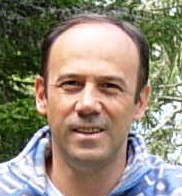Studying at the University of Verona
Here you can find information on the organisational aspects of the Programme, lecture timetables, learning activities and useful contact details for your time at the University, from enrolment to graduation.
Academic calendar
The academic calendar shows the deadlines and scheduled events that are relevant to students, teaching and technical-administrative staff of the University. Public holidays and University closures are also indicated. The academic year normally begins on 1 October each year and ends on 30 September of the following year.
Course calendar
The Academic Calendar sets out the degree programme lecture and exam timetables, as well as the relevant university closure dates..
| Period | From | To |
|---|---|---|
| 1st semester | Oct 1, 2009 | Dec 19, 2009 |
| 2nd semester | Feb 22, 2010 | May 22, 2010 |
| Corsi intensivi estivi (sede di Canazei) | Jul 11, 2010 | Aug 7, 2010 |
| Session | From | To |
|---|---|---|
| Sessione invernale | Jan 7, 2010 | Feb 20, 2010 |
| Sessione estiva | May 24, 2010 | Jul 10, 2010 |
| Sessione autunnale | Sep 1, 2010 | Sep 30, 2010 |
| Sessione straordinaria | Dec 1, 2010 | Dec 20, 2010 |
| Period | From | To |
|---|---|---|
| Immacolata concezione | Dec 8, 2009 | Dec 8, 2009 |
| Vacanze Natalizie | Dec 21, 2009 | Jan 6, 2010 |
| Vacanze Pasquali | Apr 2, 2010 | Apr 6, 2010 |
| Festa dei Lavoratori | May 1, 2010 | May 1, 2010 |
| Santo Patrono | May 21, 2010 | May 21, 2010 |
| Festa dellla Repubblica | Jun 2, 2010 | Jun 2, 2010 |
| Vacanze estive | Aug 9, 2010 | Aug 15, 2010 |
Exam calendar
Exam dates and rounds are managed by the relevant Economics Teaching and Student Services Unit.
To view all the exam sessions available, please use the Exam dashboard on ESSE3.
If you forgot your login details or have problems logging in, please contact the relevant IT HelpDesk, or check the login details recovery web page.
Academic staff
 roberto.fini@univr.it
roberto.fini@univr.it
Study Plan
The Study Plan includes all modules, teaching and learning activities that each student will need to undertake during their time at the University.
Please select your Study Plan based on your enrollment year.
1° Year
| Modules | Credits | TAF | SSD |
|---|
2° Year activated in the A.Y. 2010/2011
| Modules | Credits | TAF | SSD |
|---|
3° Year activated in the A.Y. 2011/2012
| Modules | Credits | TAF | SSD |
|---|
| Modules | Credits | TAF | SSD |
|---|
| Modules | Credits | TAF | SSD |
|---|
| Modules | Credits | TAF | SSD |
|---|
Legend | Type of training activity (TTA)
TAF (Type of Educational Activity) All courses and activities are classified into different types of educational activities, indicated by a letter.
Mathematics (2009/2010)
Teaching code
4S00181
Credits
9
Language
Italian
Location
VICENZA
Scientific Disciplinary Sector (SSD)
SECS-S/06 - MATHEMATICAL METHODS OF ECONOMICS, FINANCE AND ACTUARIAL SCIENCES
The teaching is organized as follows:
1 - lezione
2 - esercitazione
Learning outcomes
Module: 1 - lectures
-------
The aim of the course is to give the basic mathematical knowledge, necessary to the following courses in statistics and economics. The course provides the classical arguments from mathematical analysis and linear algebra.
Module: 2 - esercise lectures
-------
This module intends to complete the theoretic knowledge with the adequate calculus ability
Program
Module: 1 - lectures
-------
Sets and subsets. Power set. Union and intersection of sets. Cartesian product. Numerical sets: natural, integer, rational and real numbers. Real intervals. Sup, inf, max, min of a set.
Real functions. Composition of functions. Monotone functions. Elementary functions and their graphics. Power, exponential and logarithmic function.
Analytical geometry. Curves and their equations.
Equations and inequalyties.
Limits and continuity. Calculus of limits. Landau symbols. Continuous functions. Weierstrass theorem.
Derivatives. Calculus of derivatives. Stationary points. Maxima and minima of functions. Lagrange theorem. Taylor formula.
Integrals. Primitive of a function. Riemann integral. Some properties of the Riemann integral. Sufficient conditions. Integral function and the fundamental theorem of calculus. Calculus of the Riemann integral. Elementary methods. Integration by parts. Change of variable in the integral. The Riemann generalized integral.
Series. Geometric series and armonic series.
Linear algebra topics. Linear spaces R^n. Linear dependence and linear independence. Subspaces. Basis and dimension of a space. Inner product.
Matrices. Multiplication of matrices. Determinant and its properties. Inverse matrix. Rank.
Systems of linear equations. Rouché-Capelli theorem. Cramer theorem.
Functions of more than one variable. Level curves. Continuity. Partial derivatives and gradient. Maxima and minima.
Module: 2 - esercise lectures
-------
The topics are the same of the lectures
Examination Methods
Module: 1 - lectures
-------
In order to pass the exam students are asked to pass first a multiple choice test. A written exam is then proposed. A final oral exam is required only in case of a non full sufficiency.
Type D and Type F activities
Modules not yet included
Career prospects
Module/Programme news
News for students
There you will find information, resources and services useful during your time at the University (Student’s exam record, your study plan on ESSE3, Distance Learning courses, university email account, office forms, administrative procedures, etc.). You can log into MyUnivr with your GIA login details: only in this way will you be able to receive notification of all the notices from your teachers and your secretariat via email and soon also via the Univr app.
Graduation
List of theses and work experience proposals
| theses proposals | Research area |
|---|---|
| Tesi di laurea - Il credit scoring | Statistics - Foundational and philosophical topics |

 045 802 8264
045 802 8264






